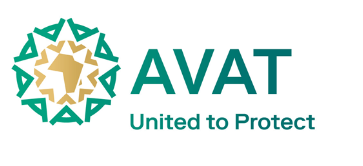AVAT establishes a No-Fault Compensation Scheme to support widespread COVID-19 vaccine delivery

23 March 2022 – The African Vaccine Acquisition Trust (AVAT) yesterday in Abidjan, Côte d’Ivoire, officially launched a no-fault compensation programme for COVID-19 vaccines in participating countries in Africa and the Caribbean. The AVAT No-Fault Compensation Scheme (AVAT NFCS) provides eligible individuals with prompt, fair and transparent compensation for unlikely adverse events associated with COVID-19 vaccines procured or distributed under the AVAT Advance Purchase Commitment Framework.
The AVAT NFCS is the first of its kind to be created by an African consortium. It is designed to reinforce public trust that, in the unlikely event of adverse effects related to the COVID-19 vaccination, quick and easy access to compensation is guaranteed. Building this confidence is essential for achieving widespread vaccine adoption. This compensation programme is a central pillar of AVAT’s wider vaccine delivery strategy.
Set up in record time, the scheme provides no-fault lump-sum compensation in full and final settlement of any claims to individuals who suffer an injury as the result of a vaccine or its administration, eliminating the need for patients to demonstrate a defect in the relevant vaccine or any fault by any person. It applies to all vaccines procured or distributed under the AVAT Framework and no fees will be charged for individuals submitting applications.
The AVAT NFCS has been developed to maximise ease of use and accessibility, with the option for a digital claims channel and a user-friendly interface via the avatclaims.com web portal, which also provides explanatory information detailing the claim mechanism’s operation.
The Scheme is run by the AVAT NFCS Trust, a Mauritius-based trust, which has appointed ESIS Inc. (ESIS) to be the scheme’s administrator. ESIS has over 30 years of relevant claims handling experience and has secured contact centers across Africa and the Caribbean to provide assistance to potential applicants in all participating Member States.
African Export-Import Bank (Afreximbank), one of AVAT’s partner institutions, was instrumental in the drafting and completion of the rules governing the scheme, as well as its supporting documents. The Bank also drove the design and development of the AVAT NFCS web portal and digital channel, which enable users to submit claims and obtain information.
Professor Benedict Oramah, President and Chair of the Board of Afreximbank, said: “The establishment of Africa’s continental multi-country no fault compensation scheme in record time for COVID-19 vaccination is testament to Africa’s coordinated pandemic response. In the face of this great challenge, African countries have once again found strength in collaboration, delivering a sophisticated digital system befitting the needs of the situation. The scheme not only provides swift and fair compensation to anyone who suffers serious adverse effects from vaccination but will instil additional confidence in the continent’s immunisation effort.”
Dr Vera Songwe, United Nations Under-Secretary-General and Executive Secretary of the United Nations Economic Commission for Africa (ECA), said: “The AVAT No-Fault Compensation Scheme is a vital cost-saving measure. African nations cannot afford more lockdowns. ECA estimes that one month of lockdowns across Africa will cost us 2.5% of our GDP or US$65 billion. It is therefore important that African Ministers of Health promote this scheme to their populations in their strategies to ramp up distribution and vaccination uptake to save lives, allay fears of being vaccinated and to mitigate pressures on already strained health care systems as well as avert the crippling cost of lockdowns."
Samallie Kiyingi, Legal Director of Afreximbank, said: “Governments are asking their citizens to serve their countries, and the common good by accepting vaccines. It is only fair that citizens are equipped with protection and recourse in the unlikely event that the vaccine led to injury. Not only is this principle an ethical imperative, it is a political and practical one also – when people feel confident that there exists a safety net, they will be more willing to get vaccinated and join an African, and global, coalition fighting the spread of COVID-19. ”

